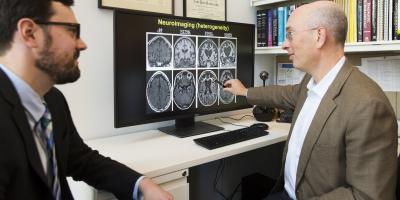
Measuring Benefits
The purpose of a clinical trial is to assess the risks and benefits of an unproven intervention (a drug, a therapy, or a different form of treatment) in a specific patient population. Once the intervention has been found to be safe, the benefits can be measured.
The potential benefits of a clinical trial fit into 3 categories:
- Direct benefits to the patient, including improvement in symptoms, improvement of daily function, a halt in disease progression, or prevention of death.
- Improved understanding of the proposed treatment, including establishment of an optimal dose level and recognition the treatment’s effects on your body.
- Expanded knowledge about the disease.
Most clinical trials aim to provide all of the above benefits, though each trial will have a different emphasis depending on the stage and design of the trial.
How do neurodegenerative disease clinical trials measure benefits to the patient?
- A physician will conduct routine physical exams to measure your strength, walking, balance, coordination and other neurological functions.
- Tests (called neuropsychology batteries) will be conducted to test your memory, language, and other cognitive abilities.
- Finally, a physician and/or study staff will work with you and your caregiver to fill out surveys that assess how you are doing in day to day life activities, such as driving, cooking, and cleaning.
All of these may be measured at multiple visits to detect changes.
How do neurodegenerative disease clinical trials improve our understanding of the proposed treatment?
- Some trials (usually early stage trials) test multiple dosages of an intervention to find the optimal balance between side effects and benefits.
- Trials also assess physiological measurements such as brain volume, protein levels in the blood, and protein levels in the cerebrospinal fluid to understand how the intervention is affecting your body.
How do neurodegenerative disease clinical trials expand our knowledge of the disease?
Clinical trials are some of the most scientifically rigorous studies conducted in medicine. The information collected is considered highly reliable and reproducible. Many clinical trials (even ones with a treatment that is ultimately determined to be not efficacious) provide researchers with a wealth of information to understand how a disease progresses and how it affects patients of different backgrounds.